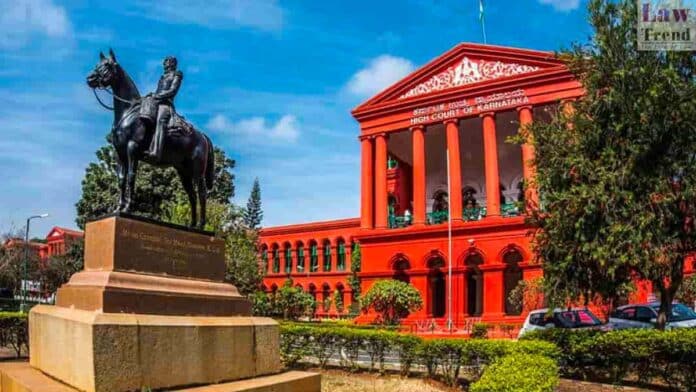The High Court of Karnataka, in RFA No. 935 of 2020 and RFA Cross Objection No. 33 of 2023, ruled that both the ‘A’ and ‘B’ schedule properties involved in a partition dispute were jointly acquired by the deceased Shahnaz Begum and her husband Sirajuddin Macci. Justice Hanchate Sanjeevkumar partially allowed the appeal and cross-objection, modifying the trial court’s earlier decision on the quantum of share each legal heir is entitled to.
Background of the Case
The appellants/plaintiffs—Samiulla Khan, Noorulla Khan (since deceased and represented by his legal heirs), and Rahath Jan—are the brothers and sister of the deceased Shahnaz Begum. They sought partition and separate possession of the properties owned by Shahnaz Begum, claiming entitlement as her heirs. The defendant/respondent, Sirajuddin Macci, is the husband of the deceased.
The suit was originally filed in the LXXII Additional City Civil and Sessions Court, Bengaluru, which decreed the suit partly on November 12, 2019, granting various shares in the two properties to the plaintiffs and defendant.
Parties’ Contentions
The plaintiffs contended that Shahnaz Begum was the absolute owner of both properties, which she had acquired through registered sale deeds dated December 3, 1987 (Schedule ‘A’) and February 9, 2010 (Schedule ‘B’). They claimed entitlement to 50% of her estate after her death on January 6, 2014.
The defendant argued that the properties, though purchased in his wife’s name, were acquired out of his own earnings out of love and affection. He asserted exclusive ownership and denied the plaintiffs’ entitlement. He also argued that the suit was barred by limitation.
Trial Court’s Findings
The trial court held that:
- Schedule ‘A’ property was jointly acquired by the husband and wife.
- Schedule ‘B’ property was self-acquired by Shahnaz Begum. Accordingly, it allotted:
- 1/10th share each in both properties to plaintiff Nos.1 and 2,
- 1/20th share to plaintiff No.3,
- 3/4th share in ‘A’ property and half share in ‘B’ property to the defendant.
High Court’s Analysis
The High Court disagreed with the trial court’s conclusion regarding Schedule ‘B’ property. Justice Sanjeevkumar held that the reasoning that the wife alone acquired Schedule ‘B’ property after the defendant’s retirement was erroneous. The Court found that both Schedule ‘A’ and ‘B’ properties were acquired from the joint earnings of the spouses.
“The defendant and deceased Shahnaz Begum were working as Teachers… both the defendant and deceased Shahnaz Begum have purchased the property jointly in the name of deceased Shahnaz Begum,” the Court observed.
The Court also condoned a delay of 614 days in filing the cross-objection, noting the defendant’s advanced age and health condition.
Application of Mahomedan Law
Justice Sanjeevkumar examined the applicable principles of succession under Mahomedan Law as elaborated in Mulla’s Principles of Mahomedan Law. It was held that:
- The defendant is entitled to 50% share as joint owner.
- The remaining 50% of Shahnaz Begum’s share is to be distributed under Islamic inheritance law.
- Plaintiff Nos.1 and 2 (brothers) were each entitled to 1/10th share, and plaintiff No.3 (sister) to 1/20th share.
Thus, the final distribution ordered was:
- Defendant: 3/4th share in both properties,
- Plaintiff Nos.1 and 2: 1/10th share each,
- Plaintiff No.3: 1/20th share.
Observations on Uniform Civil Code
While deciding the case under Mahomedan Law, the Court strongly observed the disparity between inheritance rights under Hindu and Muslim laws. Justice Sanjeevkumar emphasized:
“Our Country needs Uniform Civil Code in respect of their Personal Laws and Religion, only then the object of Article 14 of the Constitution of India will be achieved.”
The judgment also cited historical debates from the Constituent Assembly and Supreme Court rulings such as Mohd. Ahmed Khan v. Shah Bano Begum and Sarla Mudgal v. Union of India, urging legislative action toward a Uniform Civil Code.
The High Court modified the trial court’s decree, recognizing joint acquisition of both properties by the deceased and her husband.




